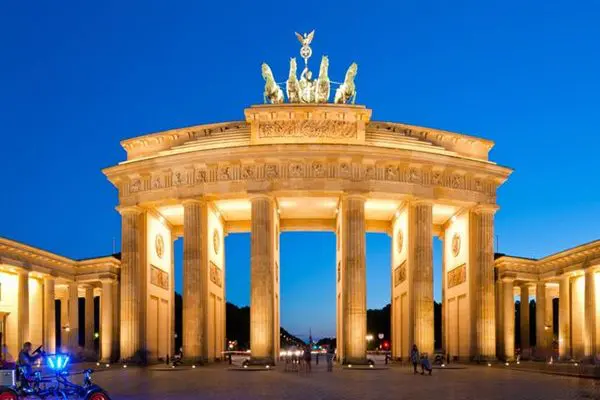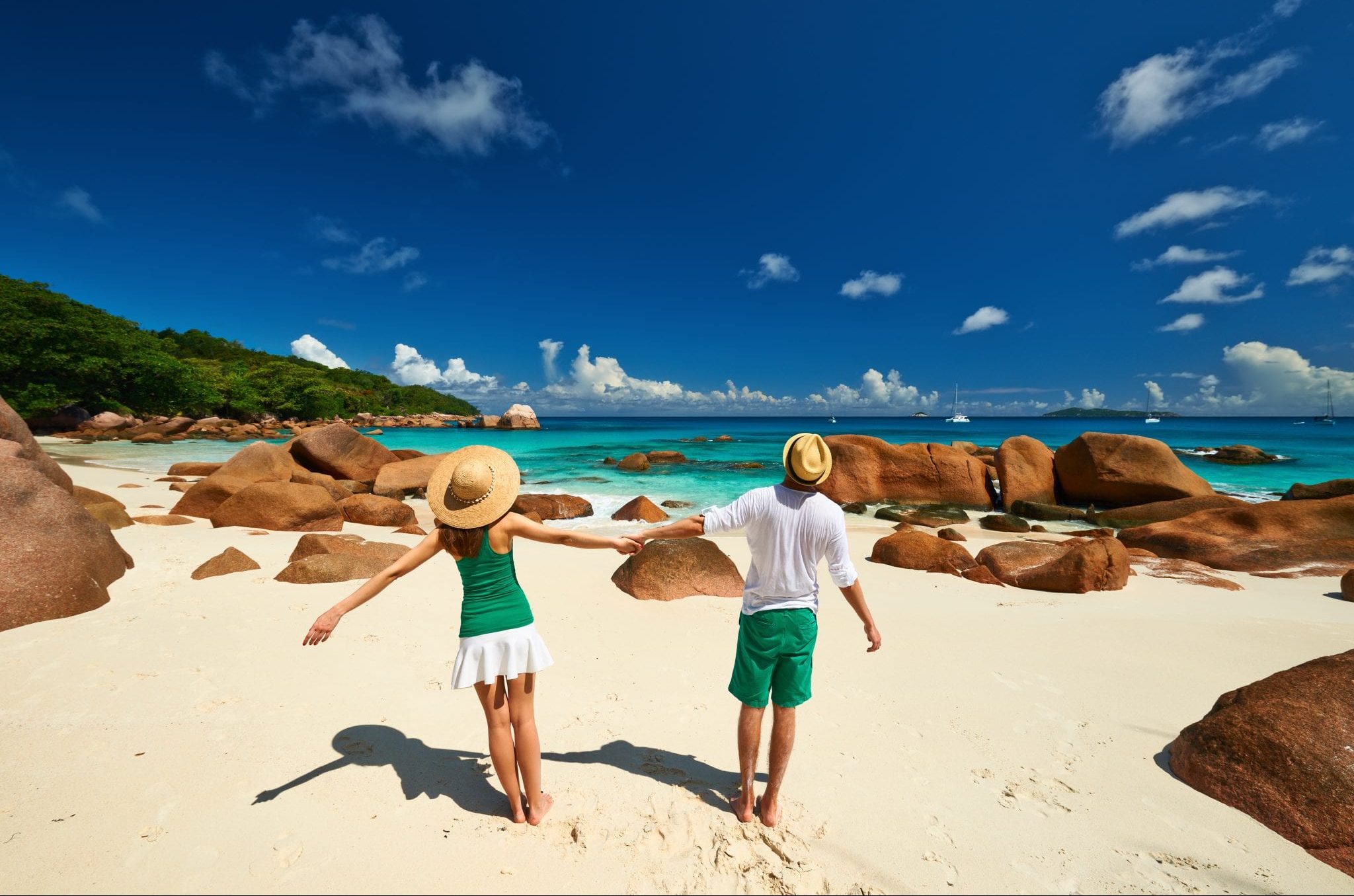Amazing Christmas Markets Trip Notes
Trip Overview
PrintExperience the magic of a European Christmas as you journey through Romania, Germany and Austria’s most charming cities. Delve into the festive atmosphere of Bucharest and explore the ancient Cozia Monastery. Discover the enchanting beauty of Salzburg, where the Christmas market comes alive with local crafts and traditional delicacies. Wander through the picturesque Vienna and explore Munich. Throughout the tour, you’ll be immersed in the rich cultural heritage and timeless traditions of a European Christmas.
Duration : 13 Days
Destination : Christmas Markets
Start/Ends in : Bucharest / Vienna
Group Size :13-35 People
Age Req. : 18+
Trip Theme : Classic, Overland
Departs : November & December
Arrival Details
The group welcome meeting with you guide and other travellers is held around 18:30 at the hotel lobby on Day 1 of your tour, unless otherwise notified.
Meeting Point:
The meeting point for this tour is:
Hotel Mercure Unirii – Bucharest – 4 Star
Address : 28Th, Bulevardul Mircea Vodă Boulevard, București 030167, Romania
Phone : +40 21 528 1100
Emergency Number: +44 203 14 99 200
Airport Transfers:
All tours starting in Bucharest include arrival airport transfer if your flight lands in Bucharest on the first day of your tour between 5am and 11:30pm.
To arrange your airport transfer please email us the following information at least 2 weeks before your departure date. [email protected]
Travel Date, Flight Number, Local Arrival Time, Name/s of the Passengers
Highlights
Bucharest: The capital of Romania has everything to keep the traveler satisfied with a cosmopolitan downtown and historic sites.
Sinaia: A town in central Romania’s Bucegi Mountains, the 17th-century Sinaia Monastery was once a royal family Residence.
Brasov: A medieval town set in the heart of Transylvania’s Carpathian Mountains, Brasov is the launchpad for the dazzling castles in the region.
Sibiu: Sibiu is a city in Transylvania, central Romania. It’s known for Germanic architecture and in its old town, the legacy of the 12th century.
Vienna: Austria’s imperial jewel exudes elegance with its opulent palaces, classical music heritage, and vibrant cultural scene.
Salzburg: The birthplace of Mozart, enchants with its baroque architecture, alpine surroundings, and the iconic Hohensalzburg Fortress.
Munich: The heart of Bavaria in Germany, combines a rich cultural heritage with a lively beer culture, highlighted by the annual Oktoberfest celebration and impressive landmarks like the Marienplatz.
Itinerary
Please note that the itinerary may be subject to small changes depending on the conditions during the tour. Alternative accommodation of similar standards may be used depending on the group size and hotel availability.
Inclusions & Exclusions
The tour price covers the following services:
Accomodation : 4 star hotels
Airport Transfer : Arrival airport transfer from Bucharest Airport to the hotel on day 1.
Transportation : Air-conditioned modern non-smoking coach or mini-bus
Meals : 12 breakfasts
Guide : Services of experienced Travel Talk local guides licensed by the Ministry of Tourism
Sightseeing: Bucharest, Brasov, Peles Castle, Count Dracula Castle in Bran, Sighisoara, Sibiu, Munich, Vienna, Salzburg
What is NOT included in the tour price?
- Any flights not mentioned above
- Travel insurance
- Meals not stated above
- Items of a personal nature
- Tips & gestures
- Entrance fees to the sights and museums
- Optional activities
- Other services not stated in the itinerary
Hotels & Accomodation
Solo travellers will be roomed with another solo traveller of the same gender in a twin or triple room, or can upgrade to a solo room by paying the single supplement. You may choose the solo room option when booking online or contact us to arrange a private room. Your tour leader will allocate rooms upon arrival at the starting hotel in accordance with the rooming lists, last minute changes may not be guaranteed.
HOTEL MERCURE UNIRII – BUCHAREST – 4 Star
A modern-design accommodation, steps away from the city center. The hotel features an on site restaurant & bar and rooms equipped with coffee-tea maker.
HOTEL AMBIENT – BRASOV – 4 Star
A charming accommodation, located in the heart of Old Town Brasov. The hotel offers its guests rooms equipped with tea/ coffee maker, an on-site restaurant offering delicacies from various cuisines.
HOTEL GOLDEN TULIP ANA TOWER – SIBIU – 4 Star
A contemporary accommodation, located only a steps away from the Old Town. The hotel offers spacious rooms equipped with tea-coffee maker, an on-site restaurant & bar and a SPA & wellness center.
Central Europe Hotels
Holiday Inn Westpark
Theater Hotel
Arcotel Kaiserwasser
Austria Trend Hotel Ananas
Budgeting
Please note that entrance fees to sights and optional activities are not included in the tour price. Optional activities are not operated by Travel Talk and may require a certain number of attendees to run. Your guide will be happy to inform you further about the available optional activities at the start of your tour. Optional activities are also listed under each day in your tour itinerary.
The Romanian Leu (RON) is the official local currency in Romania. Visa and MasterCard are widely accepted except in some small vendors.
Personal Spending
Coffee: 5 RON (1 EUR)
Sandwiches: 6 RON Baht (1.20 EUR)
Fresh pastry: 3 RON (0.60 EUR)
Local beer: 6 RON (1.20 EUR)
Water (1.5L): 4 RON (0.80 EUR)
One-way public bus ticket: 2.50 RON (0.50 EUR)
Mid-range restaurant meal: 25 RON (5 EUR)
Tipping
Tips are a common reward for service staff in Romania. For a restaurant meal, you can tip around 10-15% if tip is not included in the bill. Your tour guide and driver will be especially appreciative and honored with this kind of traditional gratitude at the end of your tour.
In Central Europe, tipping practices vary across countries, but it is generally customary to leave tips in restaurants and other service establishments. In Germany, Austria, Switzerland, the Czech Republic, Poland, and Hungary, tipping around 5-10% in restaurants is common, with rounding up the bill also widely accepted. Slovakia tends to be more lenient regarding tipping. It’s important to check for included service charges, as practices can differ. When in doubt, observing local customs or asking locals for guidance can help ensure appropriate tipping in each specific cultural context.
Shopping
Like most countries, Romania has no shortage of shopping centres and malls. However, it’s far more interesting and rewarding to shop with the locals at the markets. Mostly every village has its own market and in some you’ll even find that the goods are transported by horse drawn carriage. From fresh produce, dairy products, intricate pottery, handmade rugs, wood carvings and ceramics. You’re sure to find some beautiful finds. Don’t be afraid to haggle either, that’s all part of the fun!
Shopping in Central Europe offers a diverse and vibrant experience, reflecting the rich cultural tapestry of the region. From bustling markets to modern shopping districts, each country brings its unique flavor to the retail scene. In cities like Vienna, Prague, and Budapest, you can explore historic marketplaces offering traditional crafts, local delicacies, and unique souvenirs. High-end fashion enthusiasts will find luxury boutiques in cities such as Zurich and Vienna, while eclectic shops in Berlin and Warsaw cater to avant-garde tastes. Central Europe is also known for its Christmas markets, where during the holiday season, festively decorated stalls showcase handmade crafts, seasonal treats, and a warm, festive atmosphere. Whether seeking traditional folk art or cutting-edge fashion, shopping in Central Europe is a delightful journey through both the contemporary and the culturally authentic.
Central Europe is not a precisely defined geographical or political entity, but it often includes countries such as Germany, Austria, Switzerland, the Czech Republic, Poland, Hungary, and Slovakia. These countries have different currencies:
- Germany: Euro (EUR)
- Austria: Euro (EUR)
- Switzerland: Swiss Franc (CHF)
- Czech Republic: Czech Koruna (CZK)
- Poland: Polish Złoty (PLN)
- Hungary: Hungarian Forint (HUF)
- Slovakia: Euro (EUR)
Essential Information: Transylvania & Central Europe
Passport & Visas
If you are travelling to Romania for 90 days or less and hold the passport of one of the 60 countries listed, including UK, Australia, New Zealand, USA and Canada, you are not required to apply for a visa on arrival. Please check the official Romania government website for the list of countries, as it may be updated from time to time. If you intend to stay in Romania for more than 90 days, then you will need to apply for a visa. As Romania is also not included in the Schengen zone, visits to Romania will also not count towards your 90-day visa free limit in the Schengen area.
Many Central European countries are part of the Schengen Area, allowing for borderless travel within member countries. If you need a visa, obtain a Schengen Visa, which covers multiple countries. Ensure your passport is valid for at least six months beyond your planned departure date. Check the visa requirements for each specific country you plan to visit, as they may vary based on your nationality and the duration of your stay. The Euro is widely used in some countries, while others, like Hungary and Czech Republic, have their own currencies.You need to have valid and adequate travel insurance before your tour with Travel Talk begins.
This information is provided only as a guidance, we strongly advise that you check with the consulate or embassy as this information can change at any time and with little notice. It is your responsibility to make sure that all the required travel documents are ready when travelling.
Travel Advice
We are closely monitoring the latest travel updates to Central Europe and Transylvania, and following the advice of the UK Foreign Office. For the latest travel advice from UK Foreign, Commonwealth & Development Office (FCDO), please visit: https://www.gov.uk/foreign-travel-advice/romania and https://www.gov.uk/foreign-travel-advice/
We recommend all travellers to check their Government National Travel Advisory prior to their departure:
Australia – https://www.smartraveller.gov.au/
Canada – https://travel.gc.ca/
New Zealand – https://www.safetravel.govt.nz/
USA – https://travel.state.gov/
Travel Insurance
All passengers travelling with Travel Talk are required to have personal travel insurance before participating in any of our tours. Your guide will collect your travel insurance details on the first day of your trip. It is your responsibility to make sure you have an adequate and suitable travel insurance for you in place, you may read more at https://www.traveltalktours.com/travel-insurance
Health & Safety
The health and safety of our passengers, staff and communities visited is of utmost priority. As we monitor and comply with the official advice from the UK Foreign Office, as well as World Health Organization and government authorities regularly, we have implemented several policies and precautions on our tours for your wellbeing. You may find our Safe Travels Protocols at https://www.traveltalktours.com/safe-travels
Travel Talk Adventures has received the Safe Travels stamp by the World Travel and Tourism Council (WTTC), which allows travellers to recognise companies around the world that have adopted health and hygiene global standardised protocols – so consumers canexperience ‘Safe Travels’.
Please make sure to regularly check your Government’s travel advice before travelling and be well-informed of any requirements. Your tour guide will also notify you of the regulations and protocols to follow throughout your trip with us.
Please note that if any traveller is unable to complete the itinerary or possess a potential risk to themselves and/or the rest of the group, we reserve the right to remove them from all or part of a trip.
Please consult with your doctor for the latest medical travel information and any vaccinations you may need. We recommend that you bring any personal medical requirements and medications with you as these may be difficult to obtain while on tour.
Weather
The best time to visit Transylvania depends on what kind of experience you’re after. If you’re looking for nice weather, you’re best to go either side of summer from April to June, where you’ll find pleasant weather and wild-flower filled meadows in spring with average temperatures from 16-20°C. Or head to Transylvania from the end of August to October, where you’ll also find comfortable temperatures and beautiful autumnal colours as you enter the colder months. July and August are peak summer months, however it can get uncomfortably hot, especially in cities like Brasov and Sibiu, so you’re best to visit either side of the peak summer months for decent weather in more comfortable temperatures.
Autumn is a great time to visit, especially as the mountains and forests begin to change colour from all the foliage. Plus, Transylvania is the birthplace of Dracula after all, so there really is no better place to celebrate Halloween and get into the spirit of it! The winter months in Transylvania from December to February can be quite magical, with snow covering the fairy tale-like villages, horse drawn carriages, and snowy alpine trails. In December you’ll be in for a treat with plenty of Christmas markets and festivities, making for the classic Christmas scenes.
For more, check out our Romania weather guide.
Generally, the best time to visit Central European countries like Germany, Austria, Czech Republic, and Hungary is during the late spring (May to June) and early autumn (September to October). During these months, the weather is generally mild, with pleasant temperatures and blooming landscapes. Tourists can enjoy outdoor activities, cultural events, and explore historic sites without extreme temperatures or overcrowding. Summer (July and August) can also be a good time, but it tends to be busier, and some regions may experience warmer weather. Winter (December to February) is ideal for those interested in festive holiday markets and winter sports, but temperatures can be quite cold.
Check out our weather guide for the best time to visit Central Europe.
Money Matters
Credit and debit cards are widely accepted in major cities and tourist sites across Transylvania and Central Europe. However, if you are travelling off the beaten track, come prepared with a small stash of cash on hand for inexpensive purchases at small shops and vendors, entrance fees or small meals. ATMs can be easily found in many places across the cities.
We recommend you do not exchange bulk sums of money at the airport, as the exchange rates are usually more favourable in the major cities. Your tour leader will be happy to help if you need any assistance.
Please remember that everyone has different spending habits, some prefer to spend more on souvenirs, some on experiences and others on a night out! Make sure to budget your trip to your spending habits for shopping, drinking, and tipping.
Eating & Drinking
Romanian food is among the most diverse in the world, inheriting methods and ingredients from Turkish, Eastern, and Central European cuisines. Romanian dishes mostly consist of vegetables, cereals, dairy products, and meat. It has various branches including a wide range of soups, appetizers, olive oil dishes, and spirits. You will find local versions of the iconic Balkan dishes, consumed as part of the same rituals widespread in the region. It may be overwhelming to choose among a sea of quintessential dishes, so make sure you know all the essentials to have the ultimate food experience. For more, check our our Romanian food guide.
Mici: Mici is small sticks of minced meat seasoned with garlic, pepper, caraway seeds, coriander, thyme, and many more.
Sarmale: It consists of a mouthful of cabbage rolls filled with ground pork and rice, cooked, and served with sour cream or yogurt which complements its salty taste.
Ciorba Radauteana: A chicken breast is usually the source of meat, and nutritious vegetables like carrots, onion, parsnip, and celery go into it.
Bulz: Romania’s staple ingredient finds a soulful shape and flavor in bulz, chunks of stuffed polenta (boiled cornmeal).
Zacusca: Breakfast condiments are an essential part of Balkan cuisine, and the aromatic zacusca is the Romanian food contribution to it.
Papanasi: Papanasi singlehandedly represents the sweet side of Romanian food as an authentic version of the fried dough you will see across the Balkans.
Central European cuisine is a flavorful journey through a diverse range of culinary traditions, blending influences from Germany, Austria, the Czech Republic, and Hungary. Hearty and comforting, the cuisine reflects the region’s agricultural abundance and historical influences.Germany is renowned for its sausages, pretzels, and savory dishes like sauerkraut and schnitzel. In Austria, the culinary scene is marked by the elegance of Viennese coffeehouses and iconic pastries like Sachertorte, while hearty stews and dumplings showcase the country’s Alpine influences. The Czech Republic offers a mix of rich and comforting dishes like svíčková (marinated sirloin) and trdelník, a sweet pastry delight. Hungary, known for its bold flavors, introduces the world to goulash, a hearty meat stew spiced with paprika, and lángos, a popular fried dough snack.
Essentials to Bring & Internet
-Face mask/cover and hand sanitiser enough for your personal use throughout the trip – See more at https://www.traveltalktours.com/safe-travels/
-Travel Documents: Passport, Visa (if required), flight or transport ticket (and photocopies)
-Travel Talk Tour Voucher (printed or digital)Travel Insurance Policy (and photocopy)
-Personal medical kit and medicine
-Money (cash, credit card, travellers’ cheques)
-Power Adapter
-Reusable water bottle
-Ear plugs and eye mask
-Sun protection – hat, sunglasses, sunscreen
-Comfortable, closed walking shoes
-Wind/water proof jacket
-Warm clothes, hat, and gloves for cold weather
-Sandals, swimwear, shorts for warm weather
Internet Access
Complimentary Wi-Fi is available in most hotels, some cafes, and restaurants visited during Travel Talk tours. If you come from another EU Country, you may be able to use your phone without any additional roaming charges, please consult with your mobile provider. Make sure to enable data roaming on your mobile if you
wish to use 3G/4G abroad, although the connection may be unreliable in smaller towns and rural areas. Purchasing a European SIM card for the duration of your tour may be a cost-effective option. Your guide will be happy to advise on this.
Culture and Traditions
As the land of mythic legends and dark tales, Romania’s customs and traditions are still to this day a key part of Romanian culture. Romanian traditions tend to be passed down from generation to generation, and are a way to further connect with their rich folk culture. Although much of Romania has been influenced by modern Western Europe, ancient traditions and an orthodox-Christian religion still remains strong, with a great importance placed on family networks and values.
Romanian costumes and ornaments are colourful and intricate, used traditionally in their dances and festivals. Although Romanian people may seem reserved when first meeting, they are known to be hospitable and warm, with a great sense of humour. You’ll find yourself charmed by the fairy tale-like villages, mythic legends, majestic mountains, and rich culture and traditions of Romania.
Central Europe boasts a culturally diverse tapestry shaped by centuries of historical, artistic, and intellectual influences. This region, comprising countries like Germany, Austria, the Czech Republic, and Hungary, reflects a unique blend of traditions stemming from its rich history.From the grandeur of imperial Vienna to the medieval charm of Prague, Central Europe’s architecture stands as a testament to its multifaceted past. The cultural scene is vibrant, with renowned classical music heritage, literature, and world-class museums. Central Europeans take pride in their festivals, often rooted in age-old traditions, and their appreciation for the arts, making the region a fascinating mosaic of cultural expressions, both traditional and contemporary.
How to Dress
Dressing in Central and Eastern Europe involves adapting to diverse climates, local customs, and urban-rural variations. Casual wear like jeans and T-shirts is generally acceptable for everyday activities, while smart casual attire may be appropriate for formal occasions and nicer restaurants. Consider the season and pack accordingly, with warm clothing for cold winters and lightweight options for warm summers. Modesty is advised in religious or traditional settings. Comfortable walking shoes are essential, especially in urban areas with cobblestone streets. Pay attention to local fashion trends but prioritize practicality, and be mindful of the specific norms in the country and city you are visiting.
Solo Travellers
We have many solo travellers joining our tours. Solo travellers will be roomed with another traveller of the same gender. If you would like a private solo room, subject to availability and a single supplement, please contact us.
Rules to Follow
We are committed to ensuring a safe and enjoyable experience for everyone. We do not tolerate any form of violence (physical or verbal), bullying or harassment involving customers, partners, Travel Talk staff or locals. Sexual relationships between a tour leader and a passenger are forbidden.
We will not tolerate any illegal activity, including but not limited to: use and possession of illegal drugs, trespassing, and disrupting public order. If you consume alcohol, please ensure that you drink responsibly and follow the local laws and regulations.
If someone is acting inappropriately regarding these matters, please notify your tour leader immediately or contact us on the emergency contact number provided below.
You must follow the advice of your tour leader and local officials regarding health and safety measures. We operate all tours under Safe Travels protocols for the wellbeing of our passengers, staff and communities visited. Please ensure that you have read the https://www.traveltalktours.com/safe-travels/ and are fully prepared for your trip.
Your tour leader has the right to remove from the group anyone not abiding by these rules, with no right of compensation or refund. See more at https://www.traveltalktours.com/booking-terms/
Please remember that our travellers come from different parts of the world and will have various needs and preferences. Be understanding and patient with your fellow travellers, and always strive to be on time.
Responsible Travel
We believe that travel is a force for good and show our support through various initiatives and charity organizations, as well as keeping the principals of responsible and sustainable travel at the core of our ethos. These values are engrained in our business culture and the design of our trips just the same. Together with you, we strive to make a positive impact on local people and economies, respecting the local culture, environment, social fabric and customs; encouraging respectful and meaningful cross-cultural exchange. Read more at https://www.traveltalktours.com/responsible-travel/
 Black Friday: 60% Off
Black Friday: 60% Off Croatia Sailing : Save up to 60%
Croatia Sailing : Save up to 60% Ski Bansko : 60% Off
Ski Bansko : 60% Off Central & Eastern Europe Tours: 60% Off
Central & Eastern Europe Tours: 60% Off  Why Travel Talk
Why Travel Talk Travel Talk Blog
Travel Talk Blog Responsible Travel
Responsible Travel Fair Travels with Travel Talk
Fair Travels with Travel Talk